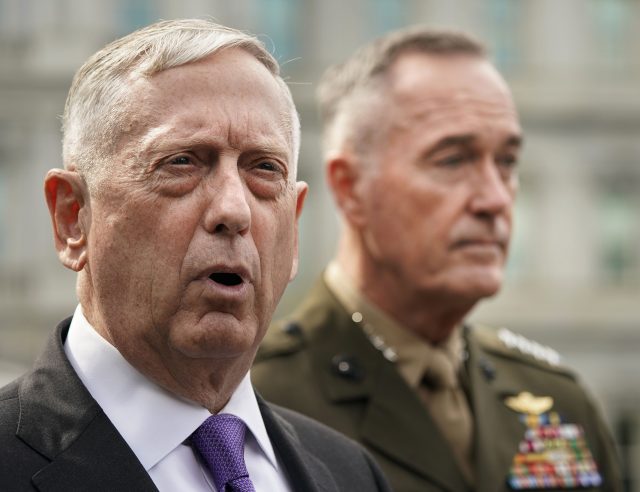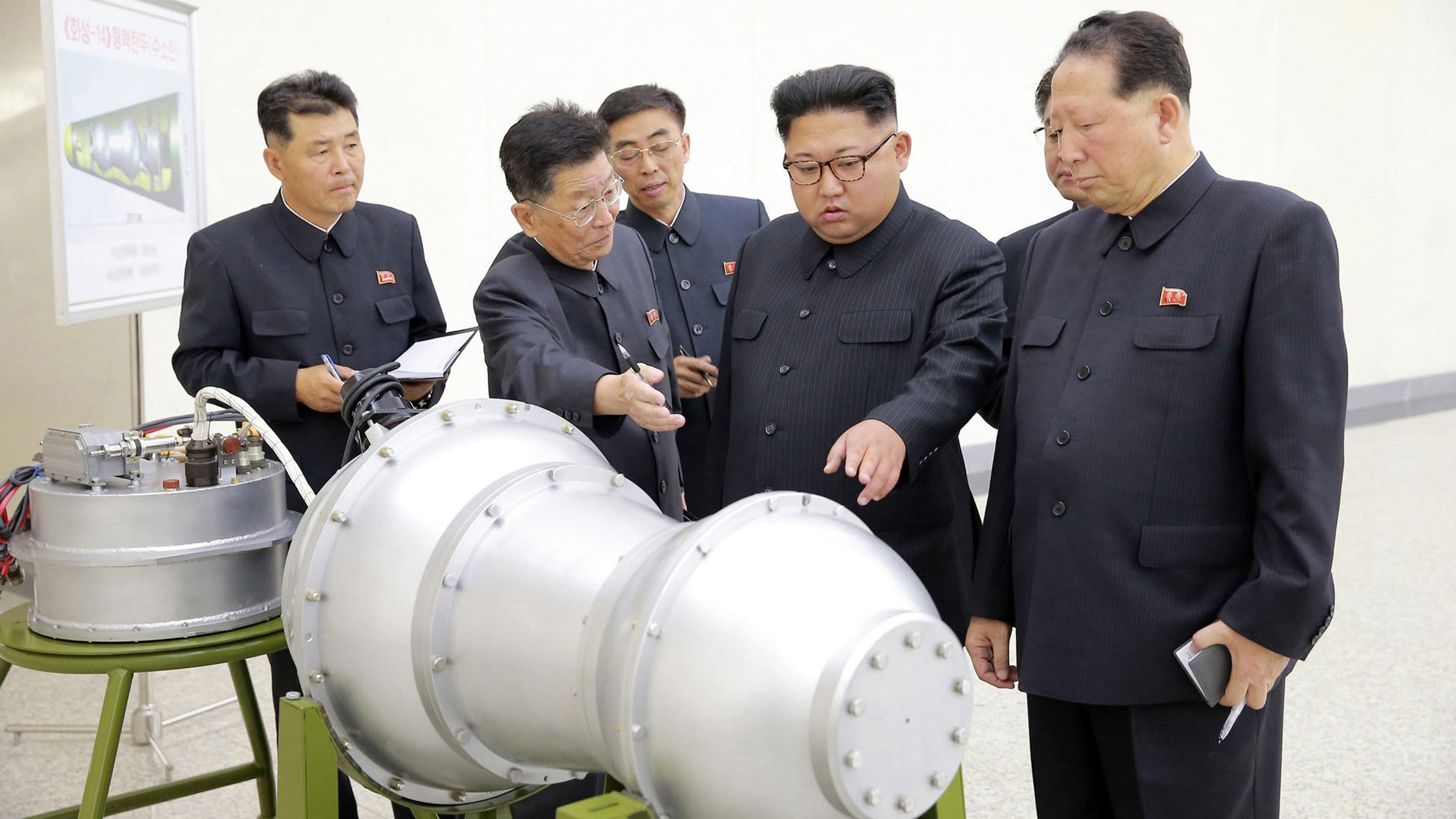US Defence Secretary Jim Mattis has reacted to North Korea’s latest nuclear test by saying threats to the United States and its allies “will be met with a massive military response”.
Mr Mattis spoke at the White House following a meeting with President Donald Trump and national security advisers. He said any response will be “both effective and overwhelming”.
Mr Mattis said the United States is “not looking to the total annihilation” of North Korea, but added “we have many options to do so”.
North Korea claimed “perfect success” in an underground test of what it called a hydrogen bomb – potentially vastly more destructive than an atomic bomb.
It was the North’s sixth nuclear test since 2006, but the first since Mr Trump took office in January.
In a brief statement to reporters Mr Mattis said the international community was unified in demanding the denuclearisation of the Korean peninsula and said the North’s leader, Kim Jong Un, should know that Washington’s commitment to Japan and South Korea is unshakeable.

Earlier, Mr Trump raised the stakes in the escalating crisis over North Korea’s nuclear threats, suggesting drastic economic measures against China and criticising ally South Korea.
With General Joseph Dunford, chairman of the Joint Chiefs of Staff, at his side, Mr Mattis said: “Any threat to the United States or its territories, including Guam, or our allies will be met with a massive military response – a response both effective and overwhelming.”
Those words alone were within the usual bounds of US commentary on answering North Korean aggression. But he seemed to take it a step further with the reference to “total annihilation”.
North Korea has conducted a major Nuclear Test. Their words and actions continue to be very hostile and dangerous to the United States…..
— Donald J. Trump (@realDonaldTrump) September 3, 2017
..North Korea is a rogue nation which has become a great threat and embarrassment to China, which is trying to help but with little success.
— Donald J. Trump (@realDonaldTrump) September 3, 2017
Mr Mattis, who did not take questions from reporters, said he had attended a “small group” national security meeting with Mr Trump and others. He said the president wanted to be briefed on each of what Mr Mattis called “many military options” for action against North Korea.
“We made clear that we have the ability to defend ourselves and our allies, South Korea and Japan, from any attacks, and our commitments among the allies are ironclad,” he said.
Mr Trump, asked by a reporter during a trip to church services if he would attack the North, said: “We’ll see.”
Commitment to Allies. @USMC #F35B, #Japanese #F15Js, @usairforce #B1Bs, @RoyalAirForce #F15Ks fly from @AndersenAFBGuam over #Japan. pic.twitter.com/uM9meaXiKs
— U.S. Dept of Defense (@DeptofDefense) September 3, 2017
The precise strength of the underground nuclear explosion had yet to be determined. South Korea’s weather agency said the artificial earthquake caused by the explosion was five times to six times stronger than tremors generated by the North’s previous five tests.
North Korea’s state-run television broadcast a special bulletin to announce the test, and said Kim attended a meeting of the ruling party’s presidium and signed the go-ahead order.
Earlier, the party’s newspaper published photos of Kim examining what it said was a nuclear warhead being fitted onto an intercontinental ballistic missile.


